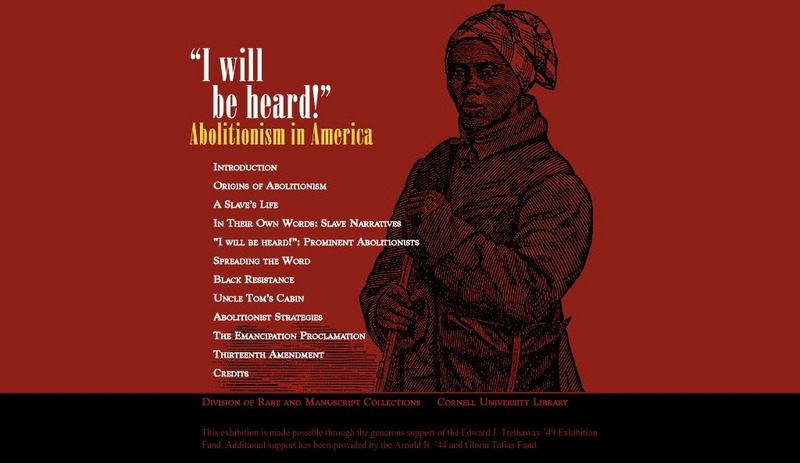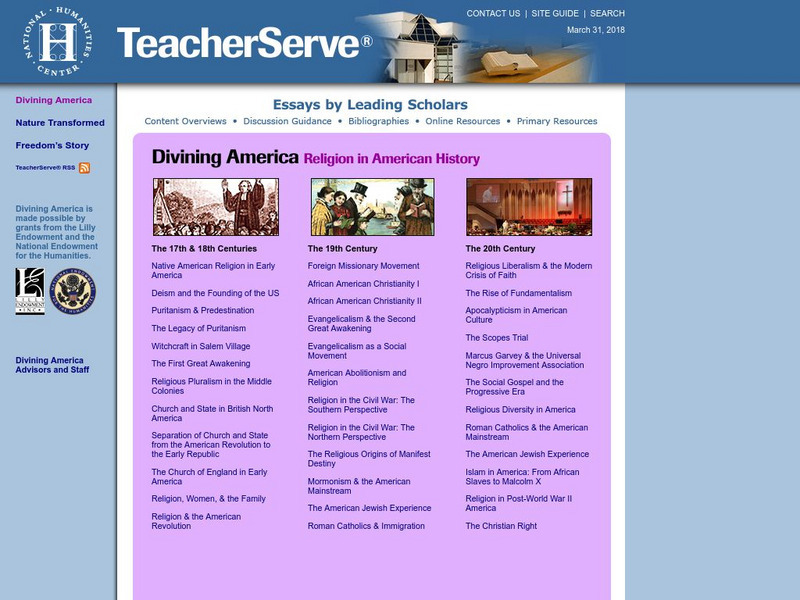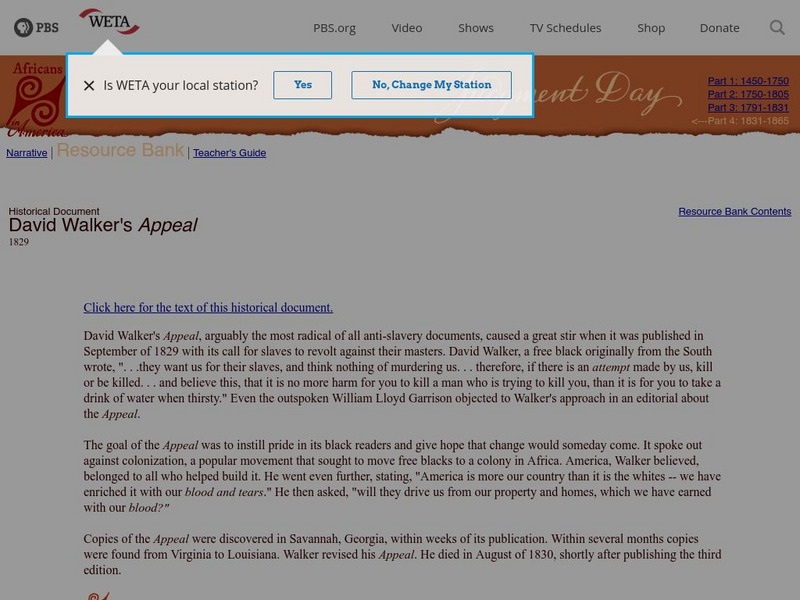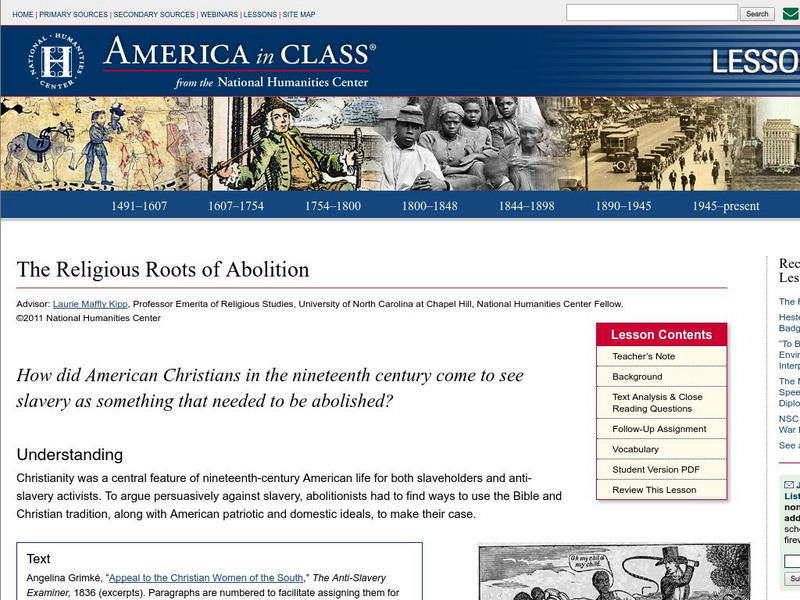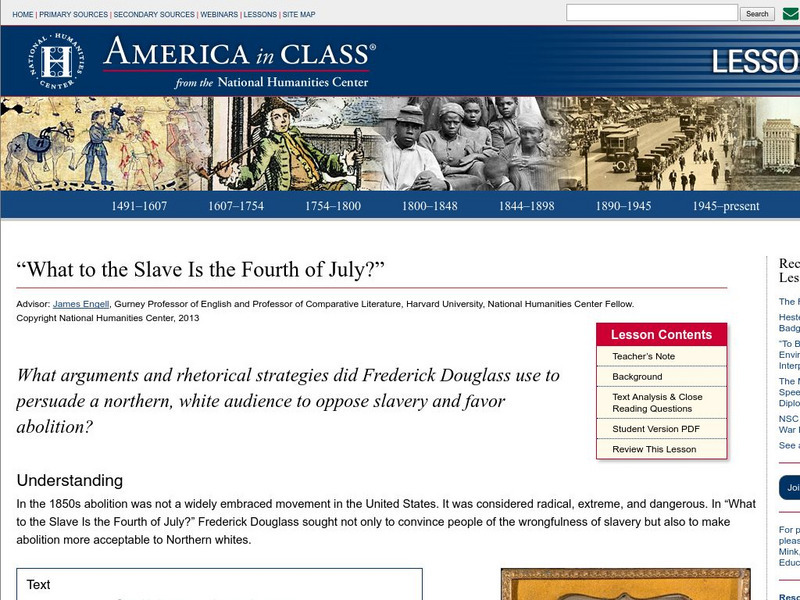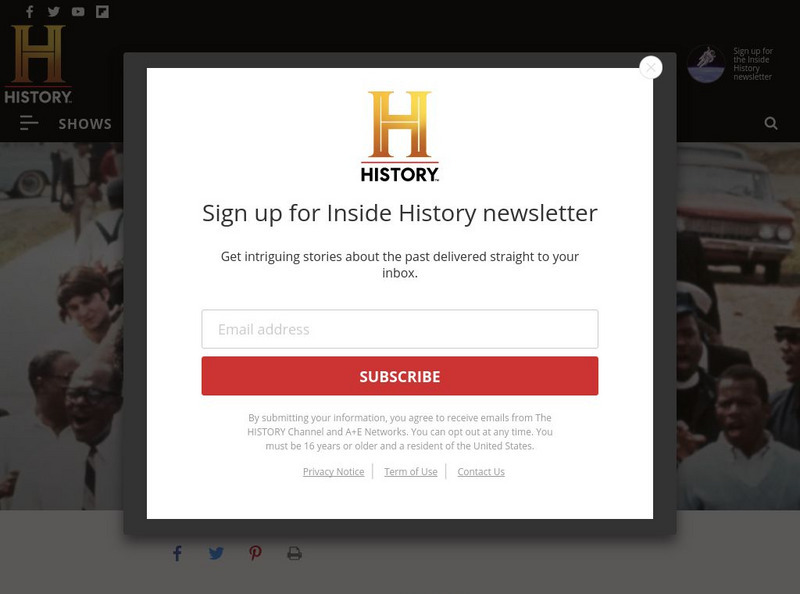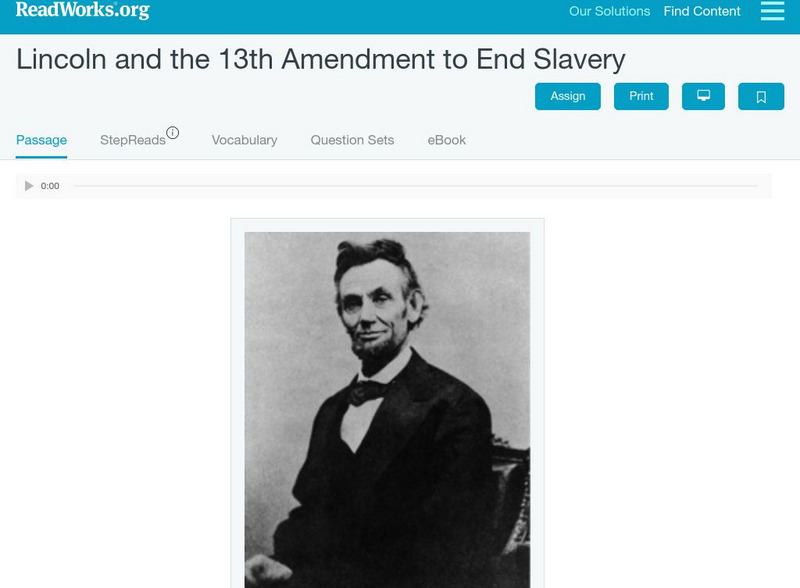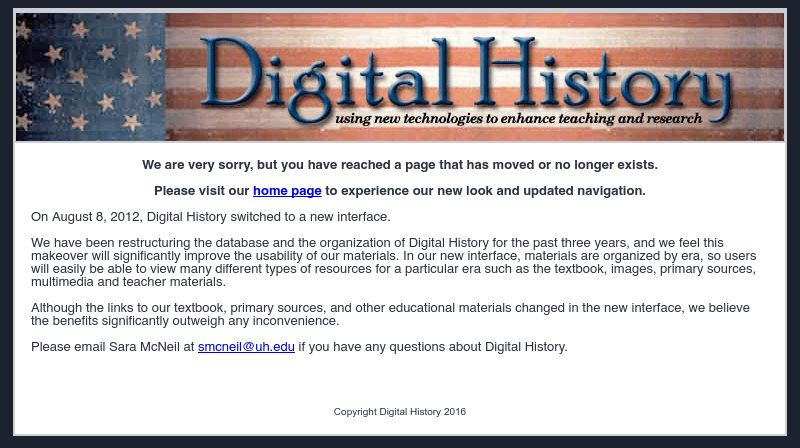PBS
Pbs: Africans in America: Angelina Grimke Weld's Speech at Pennsylvania Hall
The text of a speech given by abolitionist Angelina Grimke Weld on May 17, 1838.
Cornell University
Cornell University: Library: I Will Be Heard! Abolitionism in America
A collection of original manuscripts, letters, photographs, rare books, and other materials on abolitionism from the 1700s through 1865.
National Humanities Center
National Humanities Center: Teacher Serve: Divining America: Religion in American History
A collection of scholarly essays consisting of instructional guides accompanied by commentary. Designed to help teachers of American history bring students to a greater understanding of the role religion has played in the development of...
PBS
Pbs: Cet: Africans in America: The Underground Railroad
This PBS site provides a general history of the Underground Railroad, including a focus on notable participants or "conductors." Click on Teacher's Guide for teacher resources.
PBS
Pbs: Cet: Africans in America: David Walker's Appeal
A description of the impact of David Walker's "Appeal" calling for slaves to revolt. Click on the link to read the original text. Click on Teachers Guide for teaching resources
National Humanities Center
National Humanities Center: America in Class: The Religious Roots of Abolition
A lesson plan that looks at the role of Christianity in the fight to abolish slavery in the United States.
PBS
Wnet: Thirteen: Freedom: A History of Us: Wake Up, America!
This resource covers the changing of America due to the Industrial Revolution which brought in not only new technology but also opened the door to reform movements. From the series by Joy Hakim, "A History of Us." Includes a teacher's...
National Humanities Center
National Humanities Center: America in Class: A Pro Slavery Argument, 1857
A lesson that explores the argumments made by pro-slavery proponents in the United States prior to abolition.
Annenberg Foundation
Annenberg Learner: America's History in the Making: Antebellum Reform
Nineteenth century United States saw the creation of reform movements: temperance, abolition, school and prison reform, as well as others. This unit traces the emergence of reform movements instigated by the Second Great Awakening and...
Annenberg Foundation
Annenberg Learner: American Passages: Race and Identity in Antebellum America
This unit features authors of Antebellum America and how they portray the American identity through their literature. Click on the tabs to explore the various resources available to enhance this unit.
National Humanities Center
National Humanities Center: America in Class: "What to the Slave Is the Fourth of July?"
Explores the argument made by Frederick Douglass and his appeals to convince northern whites to oppose slavery and favor abolition. Lesson content includes resources for both teachers and students.
A&E Television
History.com: Black History Milestones
A detailed account of the history of African Americans is presented in this article. Divided by main topics or periods of time, the coming of slavery to America is the first focus. Followed by plantation life and escapes to freedom and...
Mariners' Museum and Park
Mariners' Museum: Captive Passage: The Transatlantic Slave Trade
Online exhibition from the Mariners' Museum chronicles the plight of African slaves from the beginning of their journey when they are torn from their homeland all the way to the shores of the Americas. Caught up in the lucrative...
Read Works
Read Works: Lincoln and the 13th Amendment to End Slavery
[Free Registration/Login Required] This ReadWorks passage provides a brief history of the official end to slavery in America, the 13th Amendment. A paired passage is part of this module, along with a lower level passage with related...
National Humanities Center
National Humanities Center: Toolbox Library: America in 1850: Daniel Webster: Speech to the u.s. Senate, March 7, 1850
Links to Senator Daniel Webster's famous plea, amidst the turmoil of sectional conflict, for national unity and his support of the Compromise of 1850.
Library of Congress
Loc: American Memory: African American Odyssey
This site explores Black America's quest for equality from the early national period through the twentieth century. Content includes the work of abolitionists in the first half of the nineteenth century, depictions of the long journey...
Other
Online Archive of 19th Century u.s. Women's Writings: Emancipated Slaveholders
Writing in the 1840s, Lydia M. Child tells the story of ex-slavers living in Virginia. Demonstrates the complexity of the abolition debate in Pre-Civil War America.
Digital History
Digital History: Pre Civil War Reform: Introduction
A good introduction to the topic of reform movements in Pre-Civil War America. What were the reasons that encouraged reform of many social ills?



